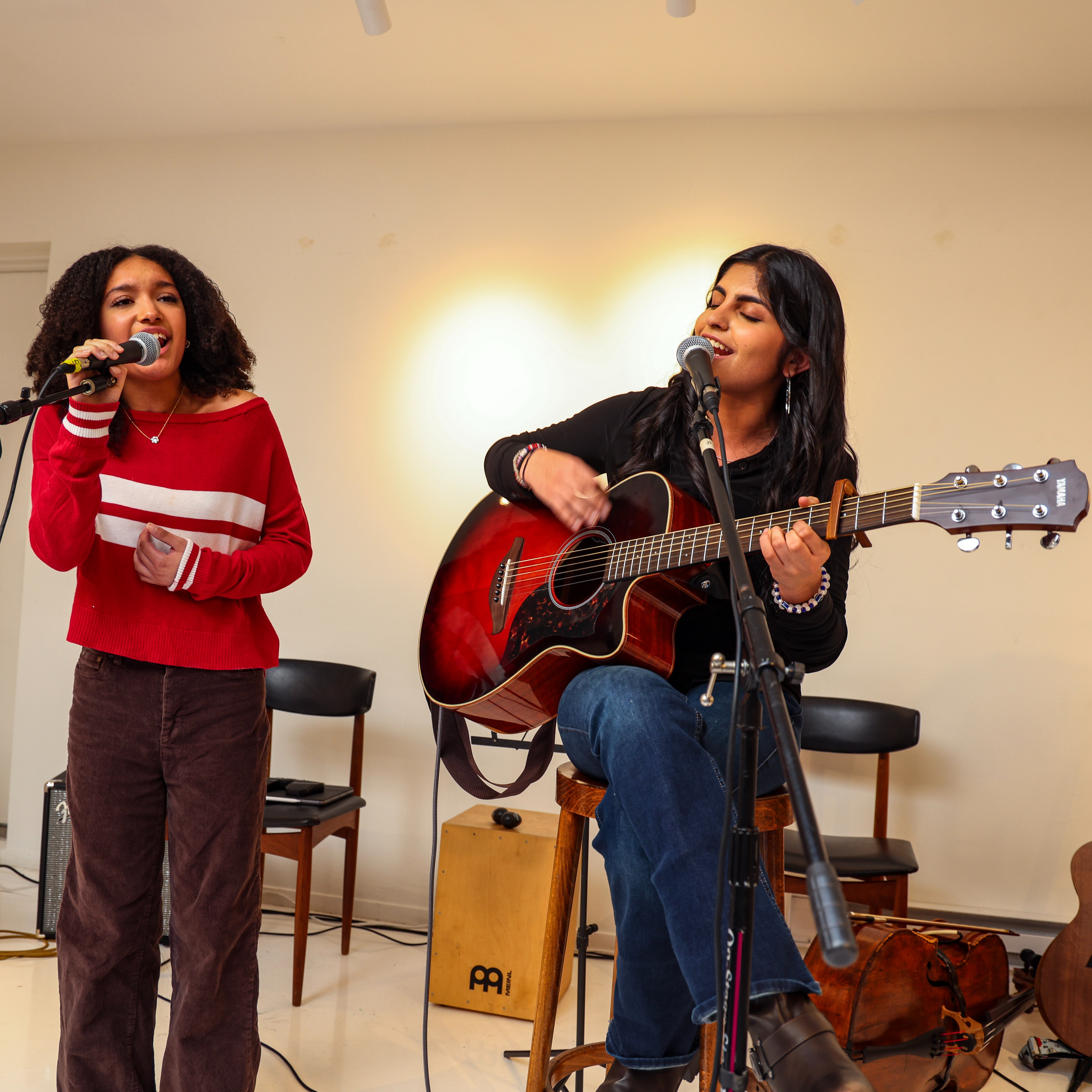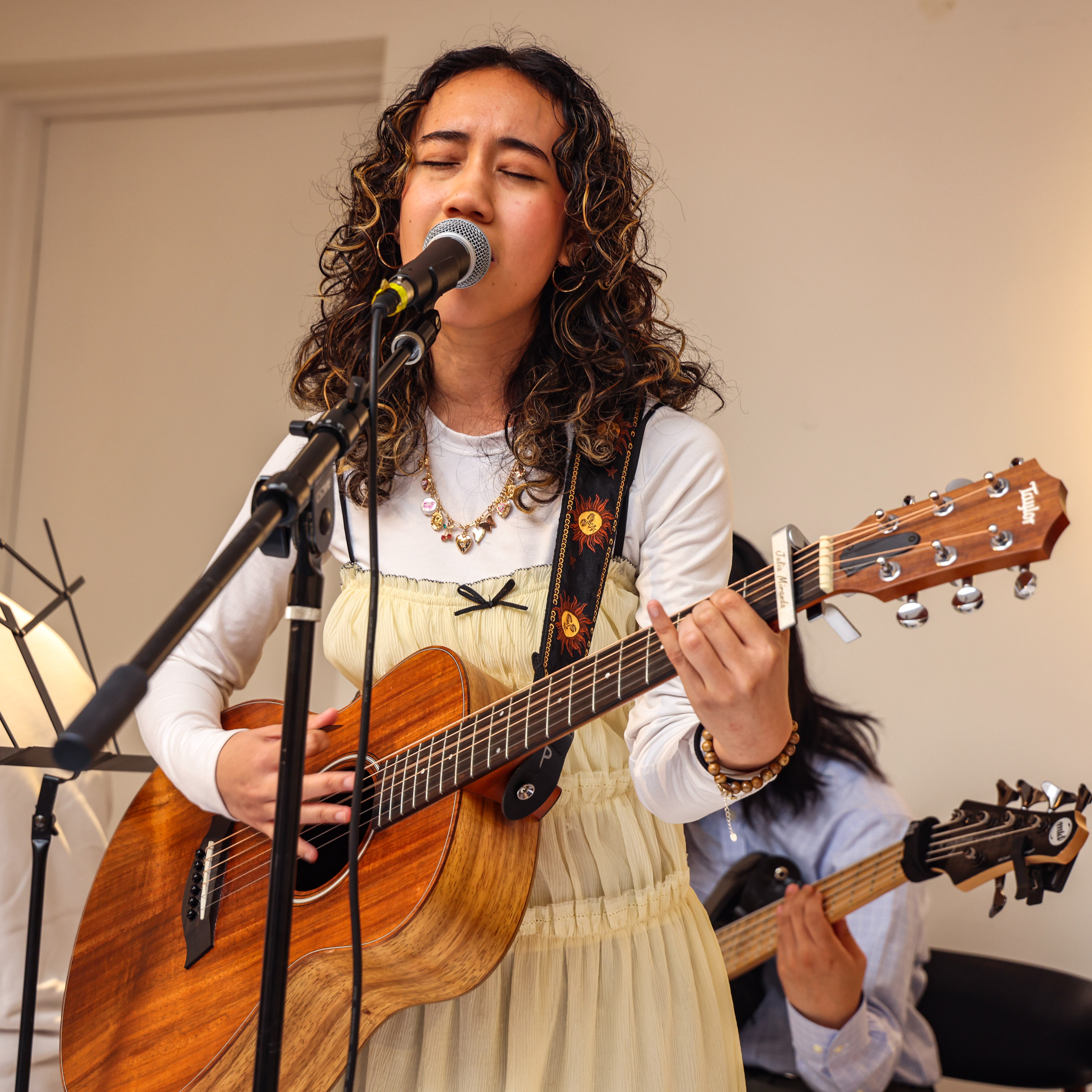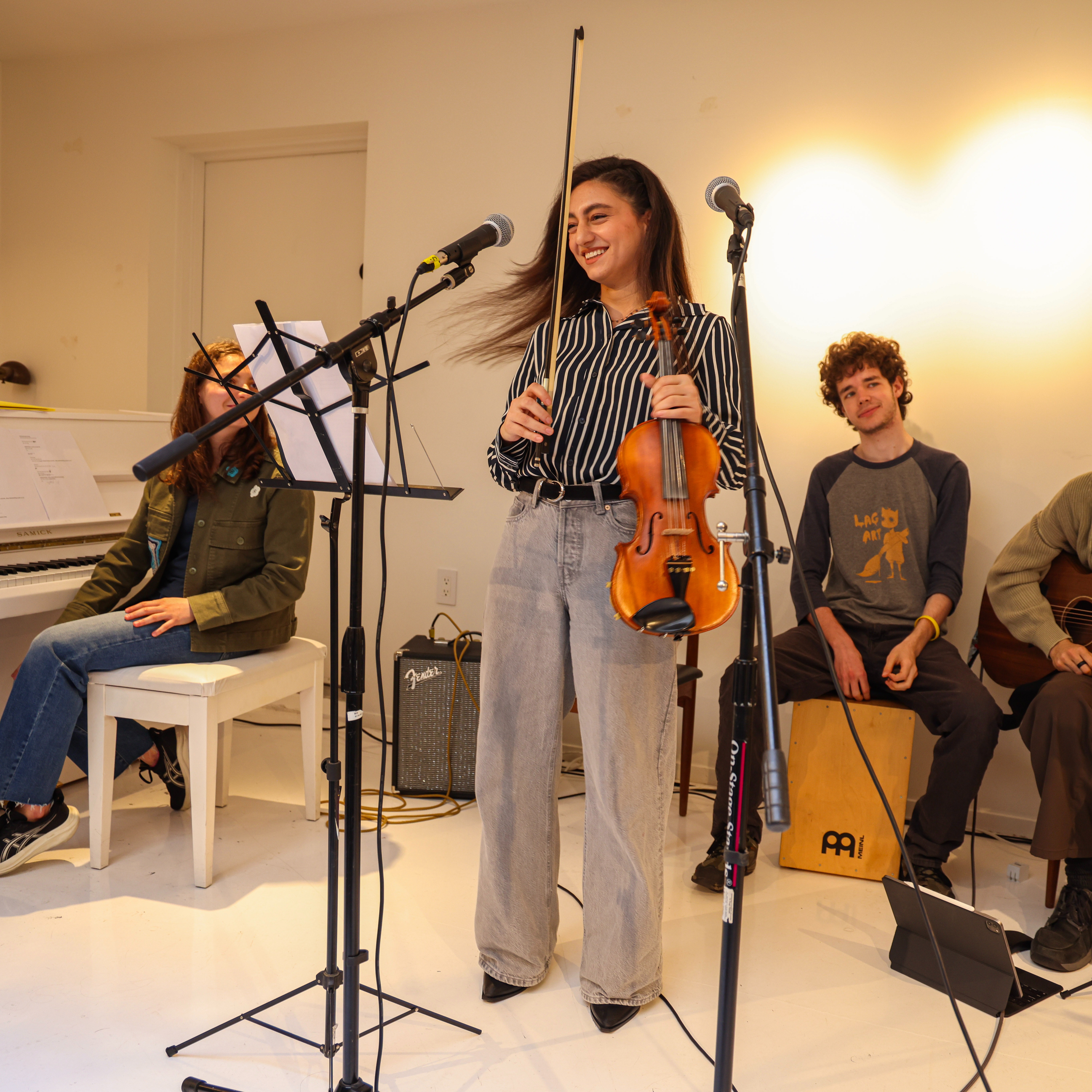
Malala Fund joined Catharsis Arts Foundation and Kids Rock For Kids for a concert in New York to celebrate Afghan girls who dare to learn and dream.
For decades, art has brought social issues — from gender to racial justice — to the world’s attention. Today is no different: from paintings depicting Afghan girls’ struggle to performances raising awareness about the system of gender apartheid in Afghanistan. People, especially youth, have used art as a medium to speak out, spark conversation and build movements that tackle the world’s most pressing issues.
Yet, art is not only a tool of activism, but a means for building solidarity too.
On May 3, Catharsis Arts Foundation hosted a concert in collaboration with Kids Rock For Kids, Rahela Trust, Civic Engagement Project, and Malala Fund, showcasing the power of art activism, to close their collaborative Strand for Women exhibition. With performances from teen musicians from New York, the concert was a celebration of and dialogue with Afghan girls. Over 100 students from Rahela Trust, a Malala Fund grantee partner, attended the concert virtually. These girls, now approaching four years without secondary education, continue to resist, learn and dream of an Afghanistan where they can choose their own futures. The concert provided a space for girls to share in their grief and anger, but also feel hope and solidarity.
“Every single girl [from Rahela Trust school] joining us today is a symbol of courage, resilience and the unspeakable belief that education and solidarity can transform lives,” said Rahela Sidiqi, founder of Rahela Trust.

Connecting through song
Afghan girls’ lives have changed drastically since the Taliban took over in 2021, barring them from classrooms and systematically erasing them from public life. In 2024, the Taliban introduced a law that bans girls over the age of 12 from singing, dashing the hopes of girls who found power and agency through their music.
“In the shadow of my shattered dream to become a musician — a dream crushed by the harsh realities of life in Afghanistan — I found a glimmer of hope in you amidst the despair and the belief that the world has died, especially for girls like us,” said a Rahela Trust student during the concert. “Your presence reminded me that there is still life and light in this world.”

Coalition building is a cornerstone of any movement. This is also true about the global movement to end gender apartheid in Afghanistan. It's a movement built on solidarity and amplifying the voices and leadership of Afghan girls and women resisting on the ground daily. Julia Miranda, a 19-year-old singer-songwriter from New York, reflected on Afghan girls’ reality during the concert: “I truly hope that there comes a day where you are able to walk out of your houses, go to school and make music in a safe environment.”

Sunbul Nooristani, a 22-year-old violinist and singer who fled Afghanistan, also performed. Her passion for music has led her to perform in over 20 countries. She spoke directly to the Afghan students attending the performance. “I love you girls. Keep studying and fighting for your hope and hopefully, one day, Afghanistan will be free again and we can return and bring back our music.”
The role of art in social movements
Art has been a tool to push for progress on many social issues, and South Africa is one country whose history is full of artists calling for justice against apartheid. Art produced during this time critiqued the South African government’s violent policies that excluded and suppressed millions of Black South Africans.
For example, artist Thamsanqa Mnyele believed art should complement the liberation of marginalised people. His most famous piece, “Women United Against Apartheid,” highlighted how Black women were critical to the movement through protesting, organising boycotts and workshops.
In this vein, Malala Fund is supporting the musicians, artists and cultural workers breaking barriers and driving grassroots resistance against gender apartheid in Afghanistan. Our partner ArtLords, a Kabul-based collective of artists and volunteers, is creating social change through their murals and public art.
Last year, Malala Fund commissioned them to paint a mural in London, alongside Malala and secondary school students. And Afghan girls working with the ArtLords team in Afghanistan painted a sister mural at a school in Kabul — a girl with a backpack — a defiant reminder of their fight for education.
Through April, Catharsis Arts Foundation also featured the voices of the Rahela Trust students — girls able to pursue their education through a digital learning programme — in an audio installation designed by Sahar Halaimzai in collaboration with Malala Fund. Through the installation, listeners can hear Afghan girls speaking directly on themes of freedom, hope, their dreams and power. The installation is a part of Catharsis’ Strand for Women — a global art project initiated by artist Prune Nourry, featuring women artists from Afghanistan and Iran who are prominent in the #WomenLifeFreedom movement.
Afghan girls and women are leading the fight against gender apartheid in creative and unique ways. It’s our responsibility to amplify their voices, their songs and their resistance.
